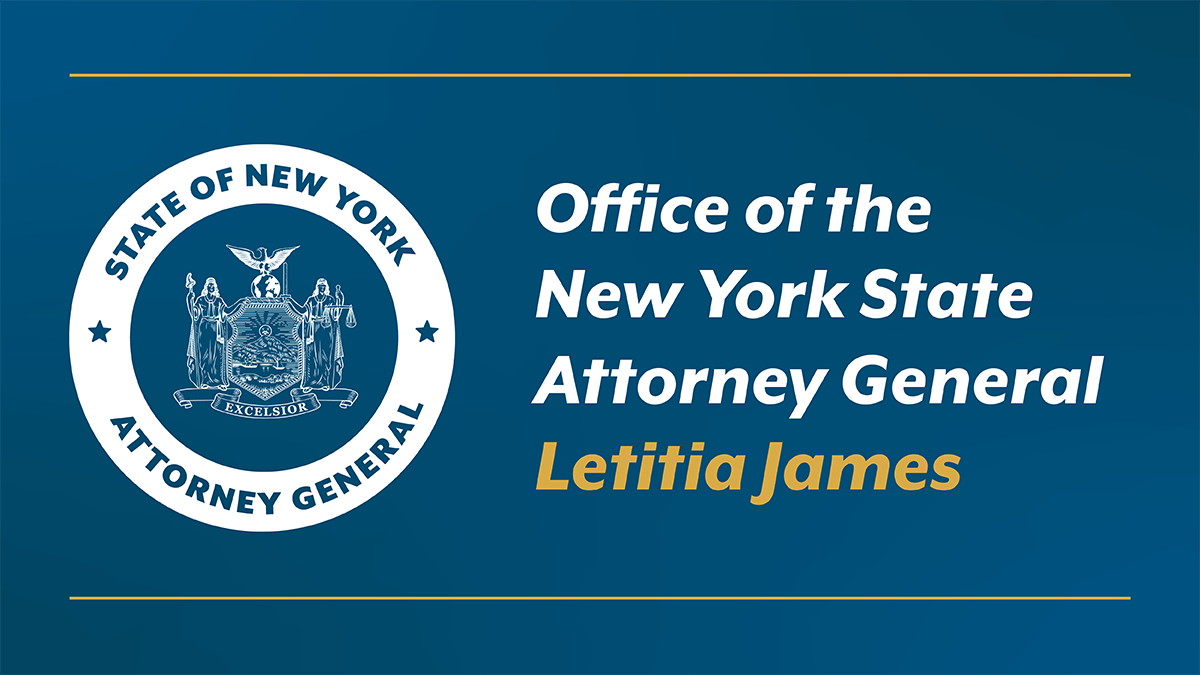Attorney General James Secures $1.5 Million for Consumers Deceived by Energy Service Company


Major Energy Overcharged New Yorkers and Switched
Consumers’ Energy Service Provider Without Their Consent
AG James Encourages Consumers Who Were Serviced
by Major Energy to Contact Her Office for Refunds
NEW YORK – New York Attorney General Letitia James today secured $1.5 million from an energy service company, Major Energy, that deceived and misled thousands of New Yorkers across the state. In January 2022, Attorney General James sued Major Energy for its dishonest business practices that led to New York consumers paying millions more for their gas and electric services than they would have paid to their utilities. This agreement resolves Attorney General James’ lawsuit and will require Major Energy to stop its deceptive practices and provide restitution to impacted New York consumers.
“Deceiving New Yorkers into spending more money to keep the lights on and the heat running is unacceptable and illegal,” said Attorney General James. “Major Energy overcharged New Yorkers for essential services through false promises and aggressive sales tactics. My office will not tolerate greedy companies that try to line their pockets by lying to New York consumers. This action should send a clear message that these practices are unacceptable, and we will stop them.”
Major Energy is an energy services company (ESCO) that offers electric and gas products throughout the state. An investigation by the Office of the Attorney General (OAG) found that its door-to-door salespeople and telemarketers lured consumers with false promises of savings, and then charged them significant, sometimes illegal early termination fees when they tried to get out of their contracts. Many consumers did not even realize they had been enrolled with Major Energy, since sales representatives dressed like workers from the consumers’ utility and even enrolled consumers without their consent. Major Energy then made it harder for consumers to cancel their contracts by simply not answering the phone.
As a result of OAG’s agreement, Major Energy is required to pay $1,500,000 in restitution to impacted consumers. In addition, Major Energy must take action to prevent deceptive practices in the future, including training customer service representatives, recording telephone communications between customers and sales representatives that result in a sale, not using misleading marketing that implies savings, and regularly monitoring sales calls.
New Yorkers who bought electricity from Major Energy may be eligible for a refund if they were subject to certain deceptive practices. New Yorkers can submit a complaint online or call (800) 771-7755 to have a complaint form sent by mail.
The agreement with Major Energy is part of OAG’s long-standing investigation of ESCOs. Investigations into this industry have resulted in ESCOs paying millions of dollars in restitution and penalties. Since 2019, OAG has recovered $5.6 million from ESCOs.
When purchasing gas and electricity, consumers have two choices: 1) buy directly from a utility company or 2) contract the purchase through an ESCO that purchases energy on the open market and then sells that energy to consumers. Because ESCOs buy the electricity and gas they supply to their customers from the same sources as the utility companies, there is no qualitative difference between the electricity and gas supplied by ESCOs and utilities. The PSC has recognized problems with the ESCO industry and has adopted regulations that restrict the kinds of plans ESCOs can offer to residential and small business consumers. In addition to guaranteed savings products, ESCOs can offer green products or fixed rate products that do not provide savings over utility rates.
Consumers can help protect themselves from dishonest ESCOs by remembering the following tips:
- If you receive an offer for energy services, make sure you understand whether the offer is from your utility or an ESCO.
- You do not have to choose an ESCO to supply your gas or electricity. You may choose to use your utility as your direct supplier.
- Make sure you understand whether an ESCO contract involves an early termination fee and, if so, the fee amount and the length of your contract commitment.
- Before accepting any offer, ask the ESCO to show you how its rates have compared with your utility’s rates during each month in the past year. This can help you judge how competitive the ESCO’s rates may be in the future.
- Remember that you have the right to cancel an ESCO contract with no obligation within three days if you change your mind.
- If you are uncomfortable with how a marketer behaves, end the conversation with a request to look over their offer in writing so you can get back to them when you have made a decision free of any pressure.
- If you receive a notice that your service is being switched to an ESCO and you did not authorize the switch, contact the utility and the ESCO immediately to tell them to halt the switch. If you are unable to get an ESCO switch cancelled, contact the New York Public Service Commission at 1-888-697-7728.
The Major Energy investigation was handled by Assistant Attorney General Glenna Goldis and former Assistant Attorney General Joseph Mueller of the Consumer Frauds and Protection Bureau, under the supervision of Deputy Bureau Chief Laura J. Levine and Bureau Chief Jane M. Azia, with assistance from Data Analyst Anushua Choudhury in the Research and Analytics Department. The Research and Analytics Department is led by Deputy Director Megan Thorsfeldt and Director Jonathan Werberg. The Consumer Frauds and Protection Bureau is a part of the Division for Economic Justice, which is led by Chief Deputy Attorney General Chris D’Angelo and overseen by First Deputy Attorney General Jennifer Levy.





